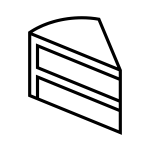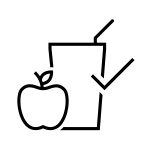About MEM Workshop
MEM aims to increase the number of Indigenous/Native American students and folks from marginalized communities (low income, disabled, etc.) in data science and scientific computing by studying environmental microbiomes. This workshop is designed to incorporate Indigenous values and approaches when conducting scientific research. Our workshop has an elder-in-residence to facilitate discussions and provide support during the workshop. Read our open access publication: "Monitoring environmental microbiomes: Alignment of microbiology and computational biology competencies within a culturally integrated curriculum and research framework."
Studying microbial systems enables researchers to understand the interactions in natural environments to gain insight into environmental microbiome dynamics. MEM utilizes microbiome research to study mining impacts to the San Juan Watershed alongside the context of "environmental and social (in)justice perspectives." (reference) In Southwest Colorado, there is over 100 years of mining that have impacted the San Juan Watershed.
In this week-long workshop, participants will gain hands-on computational experience to explore the presence of bacteria in environmental samples affected by mining contamination downstream of the Gold King Mine and Red & Bonita Mine near Silverton, CO.
This experience will introduce participants to sequencing technologies, current computational biology tools and data science methods to investigate the hidden world of microbial communities!
Housing and all meals will be arranged and paid by the workshop. Students will receive stipends for their time.
Where
Fort Lewis College, Durango, CO
"We acknowledge the land that Fort Lewis College is situated upon is the ancestral land and territory of the Nuuchiu (Ute) people who were forcibly removed by the United States Government. We also acknowledge that this land is connected to the communal and ceremonial spaces of the Jicarilla Abache (Apache), Pueblos of New Mexico, Hopi Sinom (Hopi), and Diné (Navajo) Nations. It is important to acknowledge this setting because the narratives of the lands in this region have long been told from dominant perspectives, without full recognition of the original land stewards who continue to inhabit and connect with this land. Thank you for your attention and respect in acknowledging this important legacy. "
When
Sunday to Friday
May 2026
Workshop Organizers
The workshop organizers are also the hosts, instructors and teaching assistants from Fort Lewis College and University of Colorado. Click on the individual below to learn more about who will be teaching at the workshop.

Joslynn Lee, PhD
Instructor and co-host

Jennifer Lowell, PhD
Instructor and co-host

Larry Hunter, PhD
Instructor

Brook Santangelo
Teaching Assistant

Clyde Benally
Elder-in-residence
TBD
Non autem dicta
Workshop Schedule
We will have participants arrive Sunday evening and depart Friday afternoon. There will be travel to samples collection sites and the surrounding area of Durango, CO.
The focus of this workshop is to learn about the various data science methods to analyze environmental microbiomes.
For more information about the data science projects.
See this site for details on the project.
There will be an introduction to computing (command line), this workshop is for beginners! We hope that you learn and gain experience on scientific computing, algorithms and software.
Tentative schedule of events. Day 2 is a field trip to Silverton, CO. Days 3-6 will be on the Fort Lewis College campus.
Arrival
Participants check-in to dorms

Welcome Dinner Joslynn Lee
Overview of the workshop and meet each other

Evening Social TA
Get to meet each over dessert and games.

Breakfast Dorm
Food, juice and coffee served.

Opening Session Joslynn Lee
Opening Blessing and overview of the day.

Field Trip Joslynn Lee
Departure to sample collection sites in Silverton, CO.

Lunch Silverton, CO
Food and drink from local restaurant.

Visit Mine Sites Silverton, CO
See areas affected by mining.

Return to Fort Lewis College Campus

Dinner
Food and drink from local restaurant.

Breakfast Dorm
Food, juice and coffee served.

Morning Meeting Joslynn Lee
Overview of the day

16S rRNA data analysis
Introduction to 16S rRNA amplicon sequencing method

Lunch
Box lunch and drink from local restaurant.

16S rRNA data analysis
Exploring the 16S rRNA amplicon dataset

Dinner + Guest Speaker Speaker TBD
Food and drink from local restaurant.

Breakfast Dorm
Food, juice and coffee served.

Morning Meeting Joslynn Lee
Overview of the day

MinION Sequencing
Introduction to MinION sequencing

Lunch + Speaker
Box lunch and drink from local restaurant.

16S rRNA data analysis
Wrapping up the 16S rRNA amplicon dataset

Dinner + Hike
Box food and drink from local restaurant and exploring a local campus trail.

Breakfast Dorm
Food, juice and coffee served.

Morning Meeting Joslynn Lee
Overview of the day

Data Science - Antibiotic Resistance Genes (ARGs)
Exploring a dataset to identify ARS using data science methods

Lunch
Box lunch and drink from local restaurant.

Data Science - Antibiotic Resistance Genes (ARGs)
Exploring a dataset to identify ARS using data science methods

Dinner + Guest Speaker Speaker TBD
Food and drink from local restaurant. Guest speaker is a previous GSLI/MEM participant.

Breakfast Dorm
Food, juice and coffee served.

Data Science - Antibiotic Resistance Genes (ARGs)
Exploring a dataset to identify ARS using data science methods

Lunch + Hike
Box lunch and drink from local restaurant.

Work on presentations
Prepare a presentation on what you've learned!

Dinner + Presentations Speaker TBD
Food and drink from local restaurants.
Event Venue
The organizers will be holding the event on the beautiful Fort Lewis College campus.
We acknowledge the land that Fort Lewis College is situated upon is the ancestral land and territory of the Nuuchiu (Ute) people who were forcibly removed by the United States Government. We also acknowledge that this land is connected to the communal and ceremonial spaces of the Jicarilla Abache (Apache), Pueblos of New Mexico, Hopi Sinom (Hopi), and Diné (Navajo) Nations.
Fort Lewis College Campus
Located in Southwest Colorado, Durango is located between snowcapped peaks and high desert. The campus sits on top a mesa and gets 300 days of sunshine. Surrounding the campus are 300 miles of trails and the Animas River runs through the town.
Location
Participants stay at a hotel near the Fort Lewis College campus located in Durango, CO.
Photos from 2022/2023 workshops
We had participants attend from various tribal colleges and FLC. We explored sample collection sites in Colorado and spend time working with data. Click on a photo to enlarge.
Photos from 2019 workshop
We had 14 participants attend from various tribal colleges and FLC. We explored sample collection sites in New Mexico and spend 2 days working through data in QIIME 2. Click on a photo to enlarge.
Photos from 2018 workshop
We had 12 participants attend from various tribal colleges and FLC. We explored sample collection sites near Silverton, CO and spend 1 day working through data in QIIME2. Click on a photo to enlarge.
Sponsors



F.A.Q
-
Who can apply?
Must be a current undergraduate student majoring in science or science education, and/or be currently in a science internship and have a GPA of 2.5. Students from groups underrepresented in science are encouraged to apply. American Indians and Alaska Natives students will be given priority but no one will be excluded from consideration based on their ethnic background.
-
Is travel to the workshop covered?
We will provide money (post-workshop) to reimburse for travel costs. Participants can drive themselves, there is free parking, or get dropped off.
-
Do I need to be over 18?
Participants will be staying in a hotel with a shared space but own room. They will need to be 18.
-
Do I have to stay on-campus?
We cover all food and housing. We can discuss off-campus stays on a case-by-case basis. The workshop goes from 8AM to 6PM. We do build in activities in the evening for participants to build community.
Apply
DEADLINE: February 2026Link to: LATER DATE
Prepare documents the following documents for this application:
1. Statement of Interest (one page limit, word or PDF format): Describe your educational and career plans and how this workshop experience will benefit you.
2. Resume (acceptable in Word or PDF format)
3. Most recent college transcript(s) (unofficial is acceptable in Word or PDF format)
4. Select a Reference (Workshop organizers will contact them via phone) Name / phone number / email of a science faculty or science staff member who will serve as a reference.
Please follow the link to apply: OPEN AT A LATER DATE
Contact Us
Dr. Joslynn Lee is the host of the workshop. Please use the information below to contact her.





































